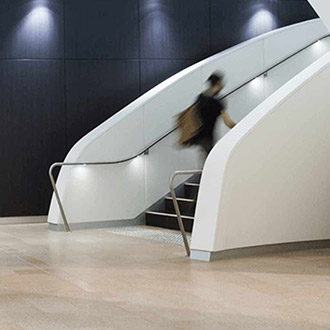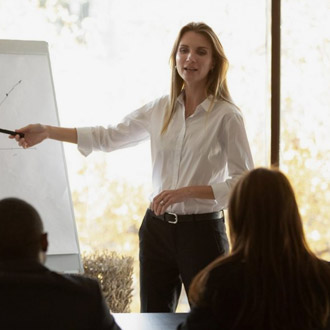Short courses for businesses and individuals
Leadership for good
Learn from the experts at your leading provider of short courses in Sydney and online. We make it easy to learn from the best.
Give your employees the skills they need to excel in their roles with our corporate training courses. Choose from our public short courses or create your own customised training experience.

Discover_

Customisation_


Why choose us?
Industry experts – Learn from the best in the business. Our facilitators actively work in the industry they teach. Get insider tips and tricks from the experts.
Course choice & quality – Experience the same high-quality content and presenter that everyone has come to expect from our public courses.
Cost savings – Save time and money. Get your entire team trained up quickly and easily while benefiting from discounted rates.
University of Sydney statement of completion – Boost your employee resume's with a world-renowned university. Every participant receives a University of Sydney statement of completion.
Account management – Enjoy a stress-free learning experience. Relax while we take care of everything.
Tailored to organisational needs – Off-the-shelf content can be customised to suit your organisation. Get the exact content you need that's relevant to your team.
Business and management
When you enrol in a business and management training course at the University of Sydney’s Centre for Continuing Education, you’re making a valuable investment in your professional life.
English
Improve your spoken and written English skills with CCE courses designed to strengthen your grasp of the English language. These courses are ideal for anyone who wants to revisit or further their understanding of English grammar.
HSC preparation (years 10-12)
The HSC syllabus has changed. We’ve responded, with an all-new program of over 60 HSC preparatory courses led by brilliant educators who will get you focused on the content that matters.
Human resources
An organisation’s greatest asset is its employees. The huge expansion of the HR industry in recent years has resulted in an urgent demand for ongoing training and development.
Humanities and culture
Humanities and culture courses are a fantastic way to explore interesting topics. They also help to develop your analytical thinking and communication techniques – useful in whichever career you choose.
Information technology
If you’re competent in IT, you’re invaluable to your workplace. But as we’re all aware, it’s a field that’s constantly changing. The information technology courses at the Centre for Continuing Education are designed to get you on top of the latest developments.
Language
Of course, learning a different language is not just for overseas travellers. You may want to gain a greater appreciation of your heritage, speak with friends from other countries, or you may simply enjoy the intellectual stimulation of learning another way to communicate.
Marketing
The Centre for Continuing Education has a wide range of marketing courses. From content marketing and social media, to writing persuasively and editing, you’re sure to find courses to suit you or your business.
Project management
Our new program of project management courses has been developed in conjunction with the University of Sydney’s School of Project Management – ensuring we deliver you the highest quality content by expert trainers.
Empower ambition, inspire leadership with CCE | Turn ambitions into achievements
Discover how the Centre for Continuing Education is empowering individuals like you to take charge of your growth and success. Whether it's embarking on a career change, advancing in your field, or enhancing team skills, this story will ignite your ambition.
Subscribe_
Join our mailing list
For latest course information, what’s on and special offers